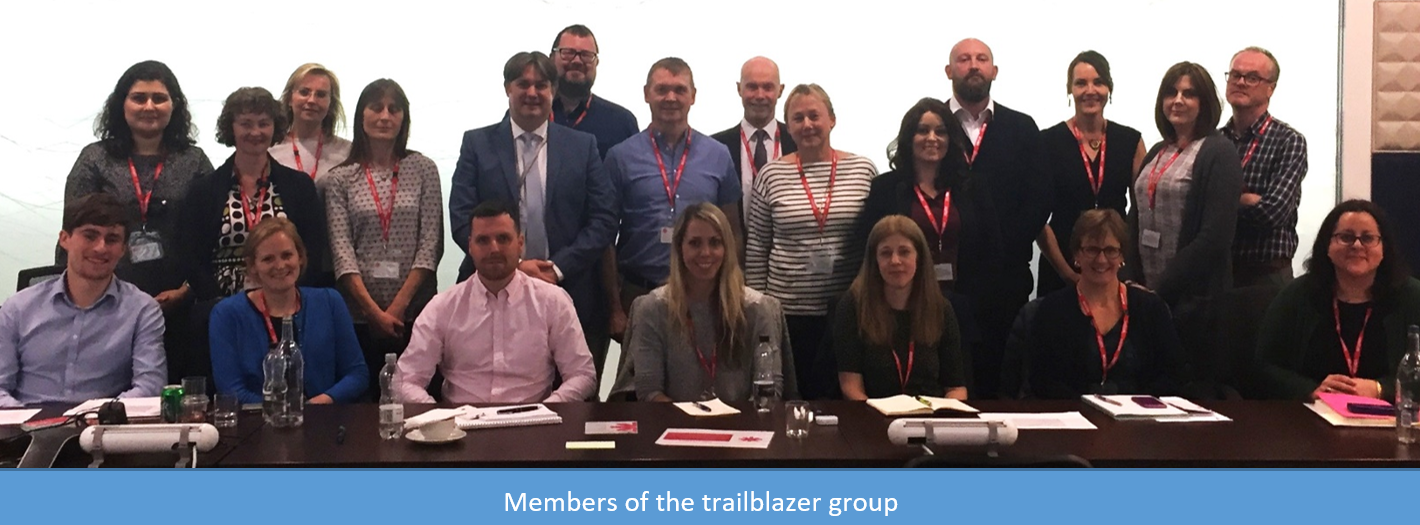
More than 2500 employers have developed apprenticeship standards, creating new opportunities and specialist on-the-job training programmes for the workforce of the future.
In June, we approved the Clinical Trials Specialist Apprenticeship for delivery, our 300th standard.

Hannah Barry, of GSK and chair of the Clinical Trials Specialist Trailblazer group, responsible for the milestone standard, speaks on progressing the standard from proposal to fully-fledged apprenticeship and what this means for the industry.
She said: “It has become increasingly difficult in recent years for employers to recruit appropriately trained scientists to work in clinical trials.
“Becoming a clinical trials specialist isn’t something you hear about at careers fairs, and the opportunities for an amazing career in this area is not widely known.
“The apprenticeship levy has given us an excellent springboard to bring early talent discussions to the forefront and create an excellent business case for employers.”
The best and the brightest
“The Clinical Trials Specialist Apprenticeship introduces an alternative route into our industry in a fashion that is likely to attract the brightest and most talented individuals as it accelerates their learning and career in parallel,” Hannah explains.
“Traditionally, a degree would be a pre-requisite to joining the industry, so this apprenticeship really does bring a new dimension to our early talent pipeline.
“We can now access a new group of future scientists who might otherwise never have thought of joining the industry. By providing specific and targeted education and training, we’re ensuring that these young people will quickly contribute to the industry as part of a highly skilled and competent workforce.
“With this ready resource in position we can continue to position England as an attractive place to conduct clinical research and a centre for excellence.”

Developing the standard
Hannah said: “The group first met in early 2017, less than 18 months ago. At the time we didn’t know how to create a standard but knew that we wanted to make this happen.”
The trailblazer group submitted the initial proposal in August 2017 and the final standard was approved just 10 months later.
She continues: “Throughout the process, we were supported and guided by the Institute on how to navigate the processes. As we understood what needed to be done and how everything worked, we managed to move through the process pretty quickly.”
The apprenticeship
The level 6 qualification will be delivered over 4 to 5 years. Apprentices will receive a thorough background in the process of clinical research throughout the programme while also experiencing it first-hand. They will develop an understanding of the core science that underpins c\linical trials.
Through academic study, apprentices will gain the skills necessary to understand the scientific, regulatory, ethical and methodological issues involved in the design, conduct, analysis and reporting of clinical trials.
While training, apprentices will work in operational roles where, under appropriate supervision, they will deliver the monitoring, oversight or project management aspects of clinical trials.
Apprentices will be awarded Bachelor of Science degrees on successful completion of their training.
Hannah adds: “Clinical trial specialists can go on to work in a range of roles, including clinical trials assistant, clinical research associate, study co-ordinator and clinical project manager.
“As they gain experience we expect our clinical trials specialists to go on to lead clinical trial teams. This apprenticeship will open up many doors in clinical research, training tomorrow’s industry leaders.”
Next steps
“Developing the standard is just the beginning – the more important part is how to bring it to life. Our next step is to start promoting the apprenticeship to employers, education providers and, eventually, candidates,” says Hannah.
“Currently, we’re drafting an information pack for employers which will detail how to implement the apprenticeship and recruit prospective apprentices.”
1 comment
Comment by clinical research online course posted on
amazing blog.very great experience shared within this blog. all information is very helpful to me. I am medical student so this blog gives me more ideas related to Institute for Apprenticeships. this might be helps me in future.
thanks for sharing this blog